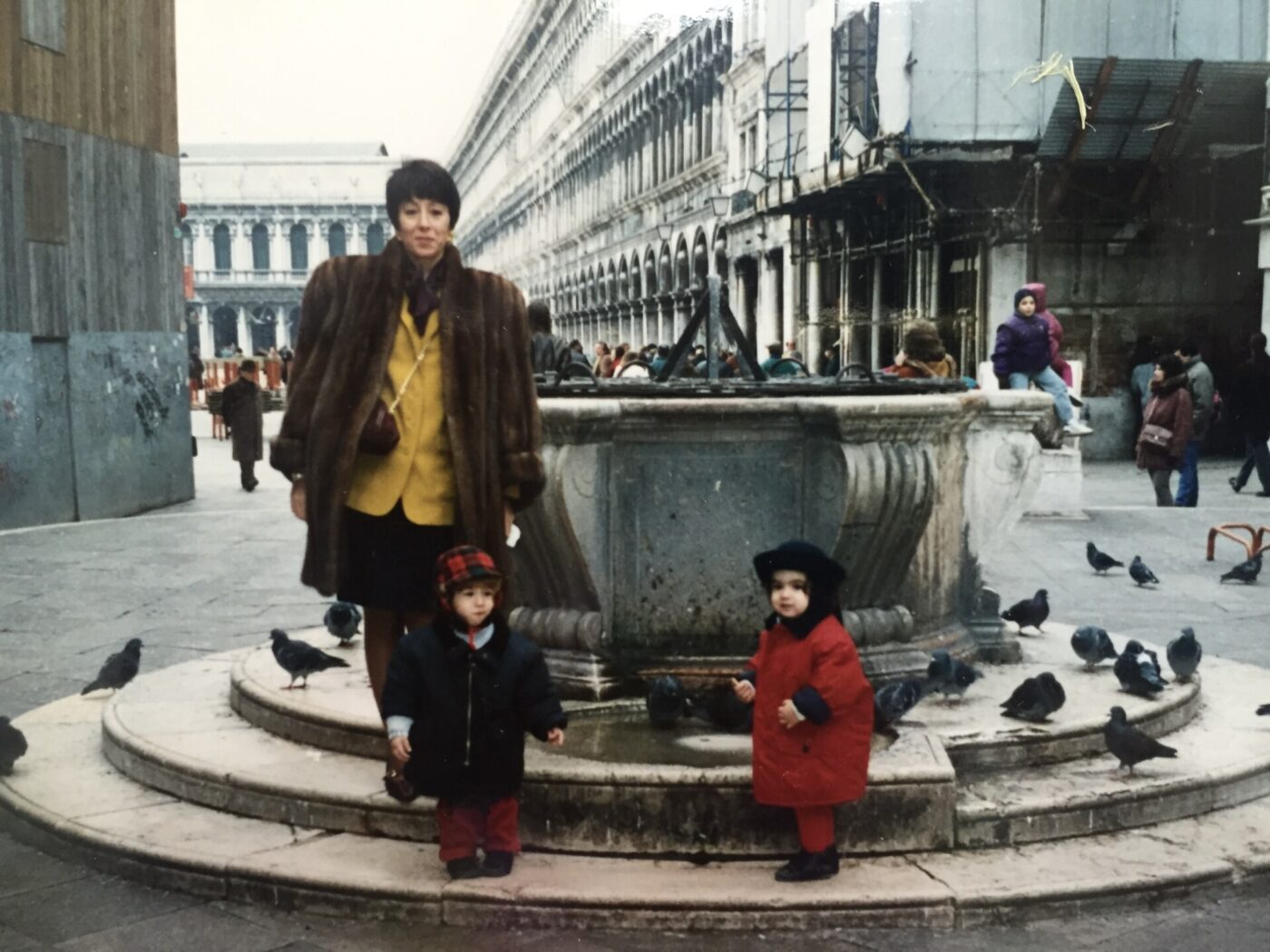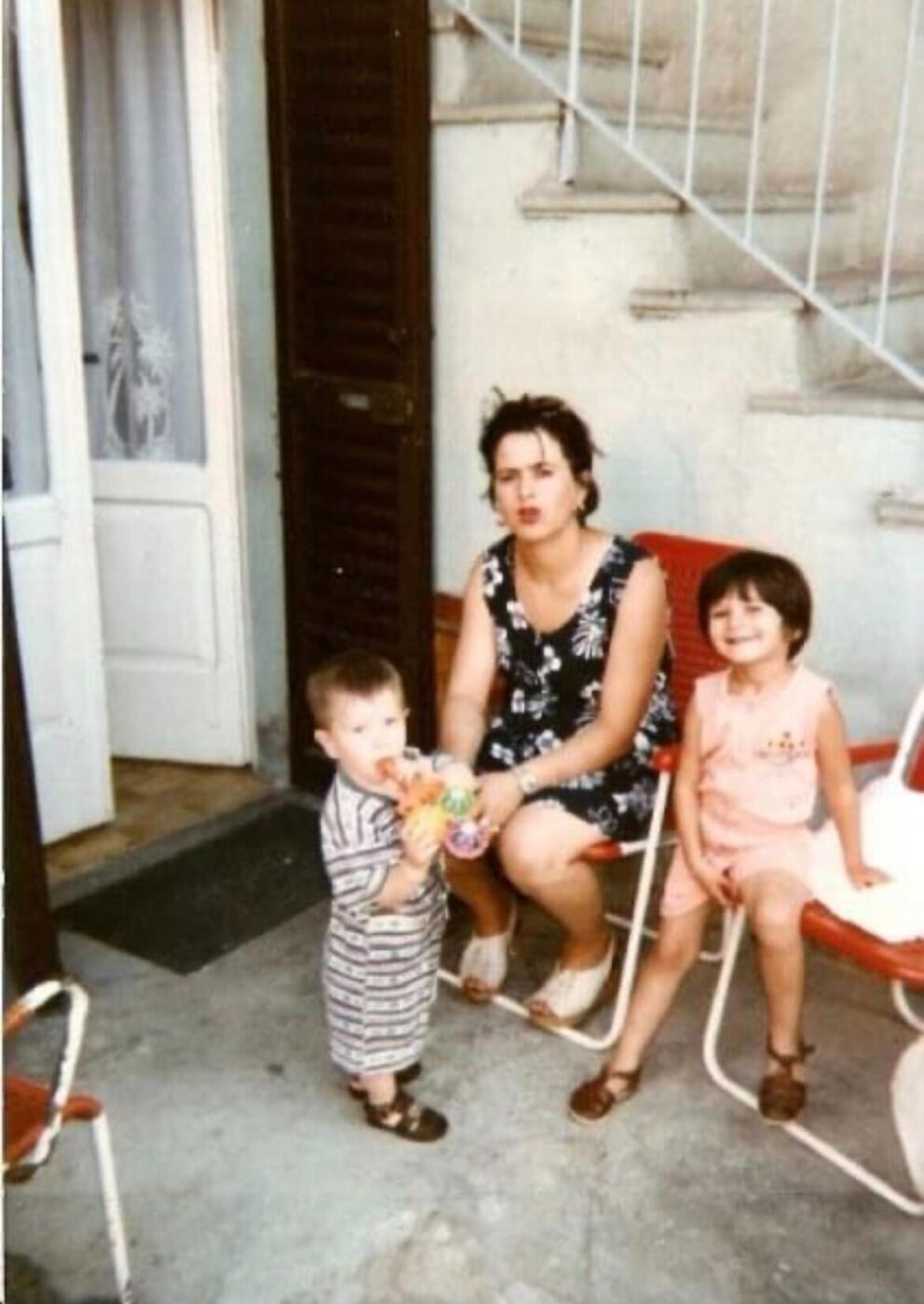Italy, in many ways, is still very much a man’s world. Most business owners are men. You’ll see groups of older men congregated at the bar, playing cards. You’ll see groups of young men standing outside bars, smoking and emphatically discussing football. The vast majority of waiters and chefs in restaurants are men. The Prime Minister may not be a man, but it’s not like she’s really doing much to give women a good name–or fight for our rights, for that matter. But, like the old adage goes, behind every strong man there is an even stronger woman. And that couldn’t be truer in Italy. Here, more so than so many other places I’ve been or lived, women really do run the show–and look great doing it. They are the drivers of community, the keepers of traditional family recipes (and we all know the key to any Italian’s heart is through their stomach), the dictators of taste and etiquette. Italian women are a particularly enviable breed: cultured, confident, and elegant. My own Great Aunt lived in Italy during the war and I am certain her quick wit, ability to quickly befriend those around her, and appreciation of excellent wine are all a result of her time spent here. Italian mothers and grandmothers will welcome strangers for dinner as if they’re old friends, showcasing hospitality that is unparalleled elsewhere, and made all the difference to me when I first moved here. All of which to say, if you really want to get to the heart of the Italian experience, you have to look towards these women:

Le Mamme | The Mothers: Home Is Where the Heart Is
Italian mothers are famed for their abundant cooking, fierce ambition for their children, and warm embrace for anyone invited to the family home. Health is an obsession in Italian households, with Italian mothers nagging children to always wear a hat and scarf in cold weather and booking a doctor’s appointment to examine each and every ailment, as opposed to the English stiff upper lip. As with all mothers, Italian mamme are protective of their offspring, but in Italy there seems to be an especially strong pull to the family home that means many grown adults still live with their parents–particularly the “mamma’s boys”. My theory is that the food is so good, they can’t tear themselves away. The dishes concocted in the kitchens of Italian mothers could rival some of the country’s finest restaurants, and family recipes are fiercely guarded secrets disclosed only to a handful of trusted individuals. Indeed, it is a mark of acceptance when an Italian mamma decides to disclose her grandmother’s precious recipe for the perfect ragù, with the lucky aspiring chef expected to ask scrupulous questions in order to do justice to the matriarchal gastronomic expertise. Since living in Italy, my culinary prowess has improved tenfold thanks to my future mother-in-law’s patience and generosity, describing in precise detail the intricacies of homemade dishes and even passing down the family pasta making machine–trust (and pressure) indeed. While being welcomed into any new family is hugely special, I have a suspicion that the approval from a real mamma Italiana is one of the most revered achievements for any foreigner.
Le Amiche | The Friends: Collaboration, Not Competition
The sisterhood is alive and well in Italy, where Italian women cherish their female friendships and seek to empower one another. I will never fail to be amazed by the ease with which Italians, particularly women, take you under their wing and altruistically offer their help or advice. There is a generosity of spirit that I have witnessed from my circle of amiche that is unlike any other; newcomers are welcomed and earnestly supported without prejudice or a hidden agenda. In Italy there is very much a culture of treating new friends just as you would treat an old friend, immediately offering contacts that may be of help and inviting you to their homes for dinner as if you were family. My Italian female friends are open and warm, each eager to meet a new face and welcoming me into their lives from the very start without asking anything in return. Of course, they are all inherently stylish and can carry off looks that I wouldn’t dare to attempt, with a sophisticated and quietly assured self-confidence.
Le Colleghe | The Colleagues: Know Your Worth
From my Italian colleagues over the years I have witnessed how to defend one’s ideas and speak up rather than sitting back and watching from the side lines. Knowing how to politely but firmly assert oneself is a hallmark of success, and the women with whom I work each have a distinct voice that they use to great effect, emboldening those around them to do the same. Spending all day with Italians is rather like a tutorial in the power of hand gestures and emotive body language. While the English are more reserved, Italians wear their hearts very much on their sleeves and are renowned for their elaborate gesticulations, lending them an impressive presence. I often find myself imitating the emphatic gestures I have picked up from watching my colleagues deliver a slick presentation or graciously winning an argument. Perhaps the most striking lesson I have taken away from working with Italians is that kindness can get you a very long way, both personally and professionally.
Le Professoresse | The Professors: Knowledge is Power
Among the many impressive Italian women in my life are the professors who taught me during my Master’s degree in Milan. Commanding, highly intelligent and–of course–beautifully dressed, my female professors obliterate any signs of patriarchal influence that still casts a shadow over female academics, and each utilises her masterful expertise and vast knowledge to deliver challenging courses to guide us in the world of business. From the professor with the economics PhD who just happened to dress in head-to-toe Dior to the director who also sits on the board of several leading luxury brands, spends weekends writing for the Harvard Business Review and still manages to help her children with their homework, these women demonstrate the power of education along with the importance of fearlessness and grit to achieve one’s goals. Likewise, the many impressive female CEOs and senior leaders who have risen to the top of some of the world’s most successful companies that delivered guest lectures provided ample inspiration for ambitious young women sitting in the audience wondering whether they could achieve similar greatness. In a country where gender equality has been slower compared to other nations, these women have educated themselves to gain authority and could run circles around many of their male counterparts.
Le Idole | The Famous Faces: Push Boundaries
There are many Italian women in the public eye that I look up to as pioneers in their respective fields, particularly in the world of fashion. In an industry that is frequently misrepresented as being frivolous, many Italian women have dared to challenge the status quo. Miuccia Prada, for example, is a woman unafraid to be autonomous and defend her creative instinct, of championing the real female form and of blazing a trail for female designers during an era when most successful fashion houses were helmed by men. Franca Sozzani, the late, great editor in chief of Vogue Italia, revolutionised print media by presenting challenging, uncomfortable subjects on the cover of a glossy magazine; she was the first editor of such a powerful title to publish an issue with exclusively black models or tackle divisive issues such as drug abuse, excessive plastic surgery and domestic violence. The novelist Elena Ferrante writes boldly of a mother’s lack of maternal instinct, challenging Italy’s most famous stereotype and unabashedly highlighting the inner struggles and jealousies women can face. Ferrante’s unconventional portrayals of motherhood are to be admired in their refreshing honesty and exploration of non-traditional female roles.

Le Sciure Milanese | The Milanese Grande Dames: Always Look Your Best
Of course, living in Milan, one cannot fail to notice the sciure, the word used in Milanese dialect to describe an elegant older woman and the subject of the hugely popular @sciuraglam Instagram account showcasing surreptitious street style snaps of Milan’s best dressed signore. The city is full of impeccably dressed women going about their daily lives, frequently swinging a perfectly battered Prada tote from the crux of their arm with a pristine mink coat draped around them. Original Ferragamo heels, strings of pearls, dark sunglasses, a touch of Gucci bamboo and perfect hair are just some of the trademarks of a real Milanese sciura. Head to any of the city’s historic pasticcerie such as Cucchi for a Sunday morning caffe e brioche for an excellent spot of sciura-watching. From these sciure, I have been inspired to be bold with style and colour, to not keep one’s best possessions only for the best, and to be less concerned with what other people think and instead dress for oneself. The sciure are effortless and sophisticated, true Milanese icons who are experts in ageing gracefully. When I grow up, I’d like to be a sciura.
There are valuable lessons to be learned from all cultures and new people one meets far from home, but I take my hat off to each of the women that surround me here in Italy, many of whom have become cherished friends. They have taught me a great deal, inspired me to achieve my goals, and supported me in more ways than they could know.



